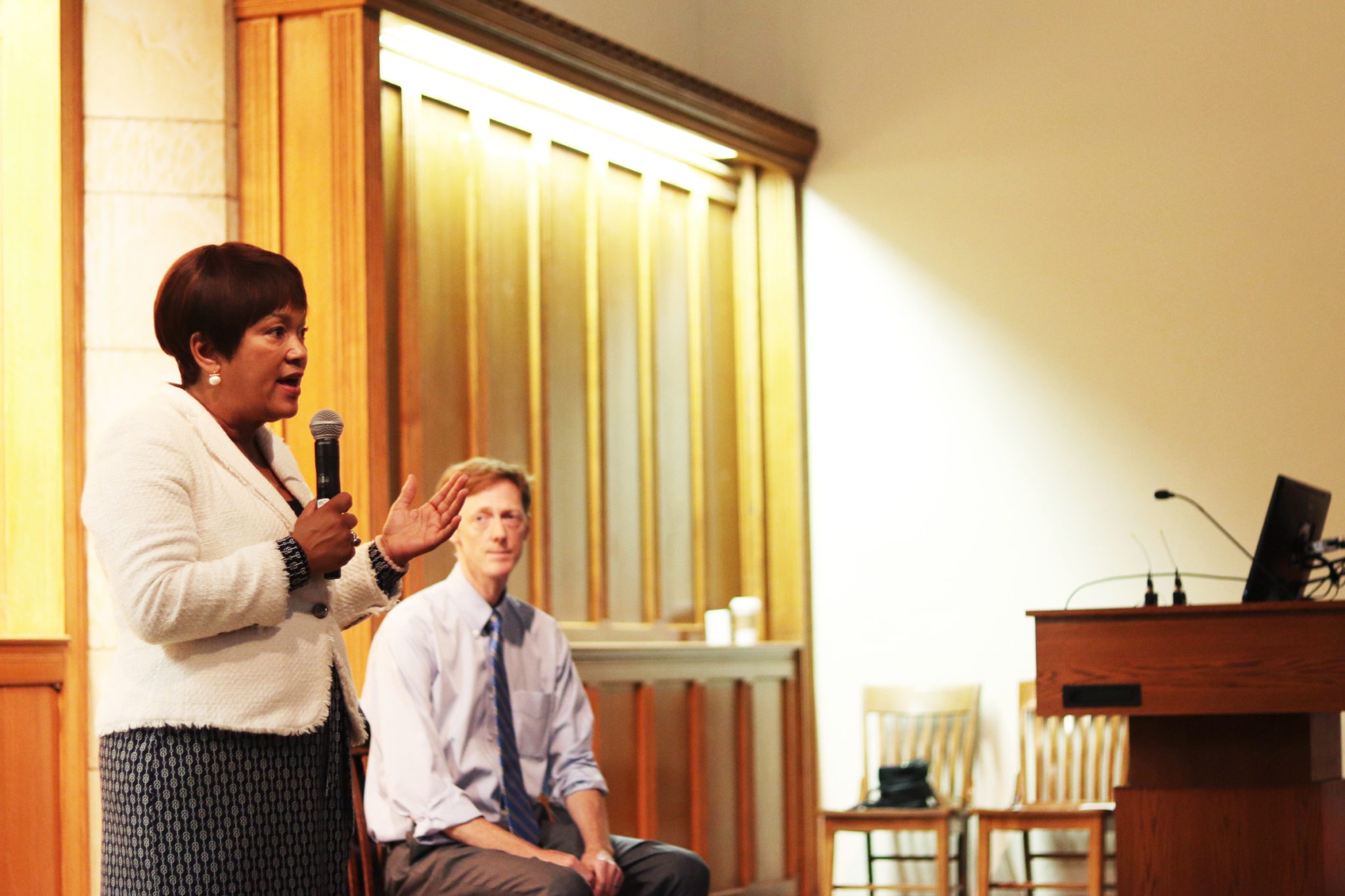
Just a week before the city’s highly anticipated mayoral primary, candidate Justin Elicker FES ’10 SOM ’10 and current Mayor Toni Harp filed a third round of financial reports with the state on Tuesday, revealing the hundreds of thousands of dollars raised and poured into the race.
Three-term incumbent Harp and Elicker face off on the Democratic primary ballot next Tuesday in one of the city’s most competitive mayoral races in recent decades. Both campaigns have leaned heavily into fundraising and spent significant campaign dollars on outside consultants, strategy and advertising. The latest filings show that Harp outraised Elicker for the second consecutive reporting period — her campaign raked in $81,765 in the months of July and August, while Elicker’s brought in $52,893 over the same period. But Elicker has outraised the mayor in total financing by just over $77,000, thanks to a massive first-quarter intake.
In the critical final days, the two camps will also spend differently. Harp’s team has effectively emptied its coffers in the lead-up to the primary, and has just four figures left in the bank as of Sept. 3. Elicker’s campaign, meanwhile, has six figures stored up for a final weeklong push leading up to the primary.
“The big fundraising hauls are great,” Ed Corey, Harp’s campaign manager, told the News. “It’s important to fundraise and have a good quarter. I think we did that, but at the end of the day, who has more money doesn’t really make a foundational difference at the end.”
Harp and Elicker, a former Ward 10 alder and executive director of the New Haven Land Trust, first came face-to-face in the 2013 mayoral race. Six years ago, Elicker lost to Harp in the primary and then ran unaffiliated in the general election, losing to Harp yet again by about a 10 percent margin. Harp easily cruised to victory in both 2015 and 2017, winning 73 percent of the vote in 2017.
Elicker’s team got off to a strong early start in fundraising this cycle — he was the first candidate to enter the race in January, and reported an intake of $117,694 over the first three months of the year. Harp, who announced her bid for a fourth two-year term late in the quarter on Valentine’s Day, took in just $26,042 as of the end of March.
Although Elicker has trailed behind the mayor in fundraising this summer, he told the News in an interview that his campaign is still “on target” with regards to fundraising and its budget. As of Tuesday’s filing, his team had spent $107,217.12 of its total $303,938.49 raised dollars in the last two months. Elicker has committed to running unaffiliated in the general election should he lose the primary, and he confirmed to the News that the campaign’s remaining $111,650.31 will all be spent in the remaining week prior to the primary.
In days to come, Elicker’s team will pour the campaign’s leftover funds — a third of the total funds it has raised from its grassroots efforts — into “direct voter communications” such as digital and multimedia advertising.
“We plan on winning the primary,” Elicker said. “And we plan on spending all of the money we’ve raised before midnight on primary night.”
The mayor’s team spent $131,757.76 in July and August from the total $226,398.10 it has raised. Both candidates wrote their respective largest checks of the summer for advisory services.
In Harp’s case, her campaign spent five figures each on three firms based outside of the state for consulting, targeted advertising and opposition research. Corey told the News that the campaign’s primary focus in time and dollar expenditures was to “get the message out” through a variety of mediums.
Several of Harp’s advertisements targeting Elicker have courted controversy this summer. Harp camp ads have compared Elicker to President Donald Trump, accused Elicker’s wife Natalie — an assistant U.S attorney out of New Haven — of collusion with the FBI and impropriety and accused Elicker of supporting the use of drone surveillance.
Elicker has also spent substantial money on political consultants. Checks to a political consultancy firm based in Manchester added up to his team’s largest summer expenditure.
As he did in 2013, Elicker has committed to using the city’s public financing initiative — the Democracy Fund. Participation in the Democracy Fund caps any individual donor’s total donation to the candidate at $390. Candidates can otherwise receive up to $1,000 from each unique donor. Harp has never participated in the Democracy Fund.
As of last Friday, Harp had not yet reached a decision on whether she will continue her bid into the general election should Elicker win the primary. She has the option to run as the Working Families party candidate.
Elicker and New Haven residents are also still waiting on gaps in Harp’s earlier financial disclosures. In March, Elicker filed a complaint with the state about Harp’s 2017 campaign, which has since resulted in an ongoing investigation. The charge states that Harp’s campaign failed to disclose the origins of close to $100,000 in donations. He also filed a complaint about Harp’s last report, claiming more than $5000 came from undisclosed donors. Harp told the News in April that the 2017 donors’ names would be published soon.
Elicker’s campaign manager, Gage Frank, criticized Harp in a press statement Wednesday for failing to release the names of donors associated with those unaffiliated donations, calling for “effective management in this city.”
Harp and Elicker will be the two candidates on the primary ballot. Local activists Wendy Hamilton and Urn Pendragon are also running as Democrats but are self-funding and did not qualify for the ballot.
The primary election will take place Tuesday, Sept. 10.
Angela Xiao | angela.xiao@yale.edu







